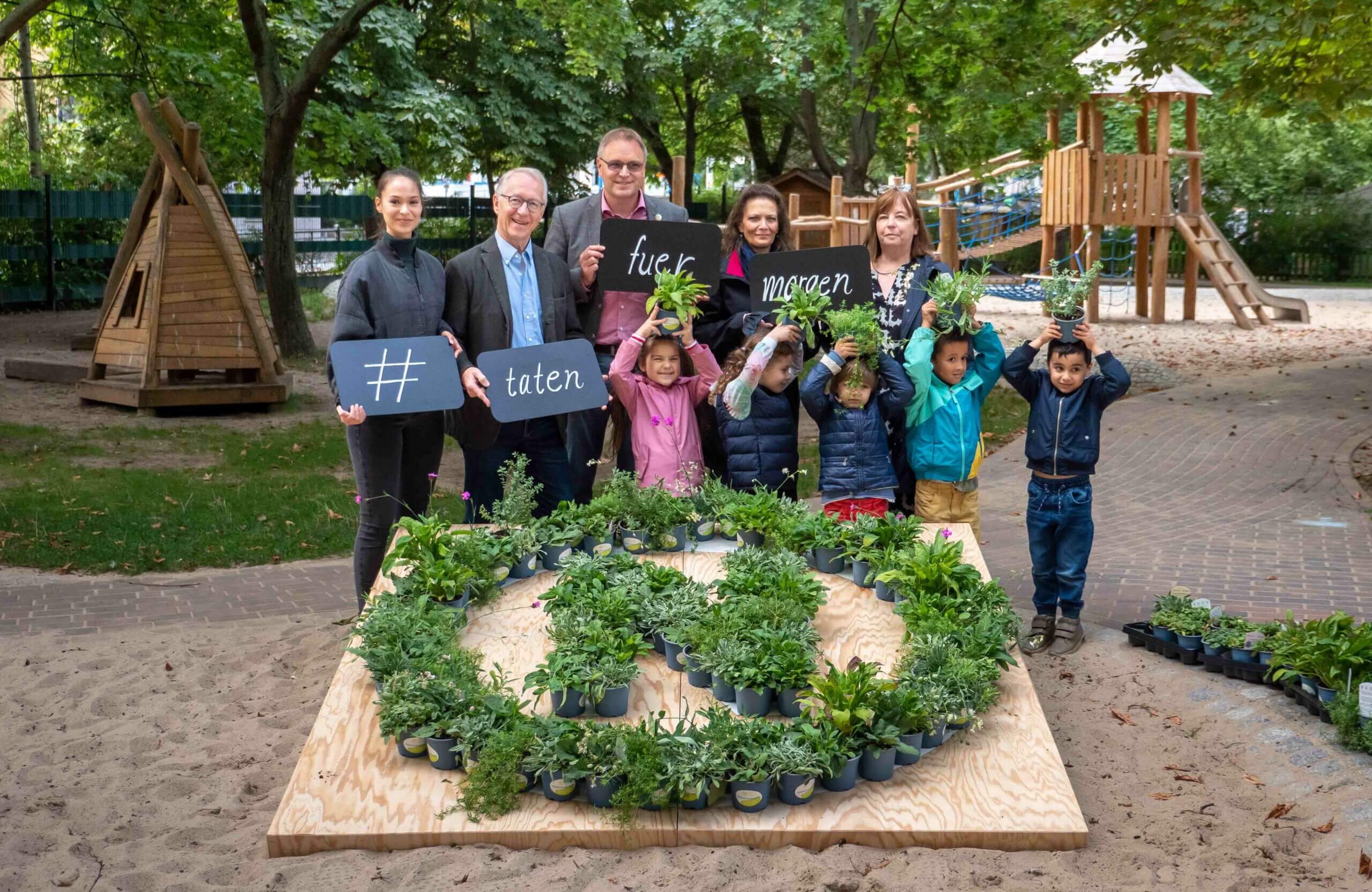From influencers and podcasters to transport activists and bakeries – never before have so many different people taken part in the German Action Days on Sustainability as this year. In their own way, they all spotlight how consumption, mobility and the very lives we lead can be designed to meet the needs of the future.

Photo: Andreas Plata © RNE
The public debate has shifted. Gone are the days when it was said that young people had no interest in politics – at least since the climate strikes. Organized by the German Council for Sustainable Development (RNE), the German Sustainability Action Days (DAN) showcased how we can actually put ideas for the future into practice and, for example, change our consumption habits. Lasting until 26 September, and in some places even until 8 October, people across Germany proved that sustainability is for all generations – and in whatever way works for you.
It was a record-breaking year. Never before have so many people got involved in the Action Days: 3,418 actions were carried out under the motto “Show us how you’re changing the world”. The event kicked off on 20 September right in the heart of Berlin at the Fröbel kindergarten Schatzinsel. In cooperation with the “Thousands of Gardens – Thousands of Species” initiative, 500 wildflowers were planted and sown there to help bees and other insects feel more at home. Anyone who happened to be passing by was given flowers for their own balcony or garden. “The kick-off event was intended to motivate people to follow up with their own action, as DAN has always seen itself as a source of inspiration for bringing more sustainability into everyday life. What emerged again was that engaging with sustainability can be as easy as child’s play and should be fun”, says Sabrina Ronco Alarcón, DAN coordinator at the RNE office.
More than a “junkfluencer”
Tanith Schmelzeisen, for example, has 50,000 Instagram followers. The young yoga instructor is a social media personality. But while many online have no problem advertising unhealthy products willy-nilly – hence why the consumer organization Foodwatch has nicknamed them “junkfluencers” – Schmelzeisen thinks otherwise. She went vegan a long time ago and now only buys plant-based foods. The problem is that many of these have long, and energy-intensive, journeys behind them. She explains all this in a video during the Action Days because she has set herself a task and is encouraging others to do the same.
Her challenge is to shop regionally, seasonally and vegan. She checks what time of year which fruit and vegetables grow at home in Germany. The video goes through everything. For instance, in the supermarket, she ends up loading her trolley with beetroot, potatoes, red lentils and pumpkin but avoids the cucumbers, which come from Spain. Later on, she cooks her lentil, potato and pumpkin pancakes, served with salad, before posting the recipe on the Internet. Schmelzeisen believes challenges like this one motivate us, attracting the “right awareness” and “more attention to sustainability”.
Tackling CO2 with challenges at home
Scientist and professor Daniela Jacob sees things much the same. A meteorologist, she is director of the Climate Service Center Germany, a scientific organization of the Helmholtz-Zentrum Geesthacht. She wants us to challenge our friends, neighbours or anyone else around, and suggests everyone gets together at the start of the year and sets themselves a goal to reduce their own carbon footprint by, say, ten percent to help protect against climate change. Then at the end of the year, see who wins. “Come up with a good prize”, explains Jacob. The idea is that anyone and everyone can think of something that works for them. If you’re not ready to give up eating meet, try riding your bike more instead of driving. You-can’t-do-this-you-can’t-do-that sentences are off the table – something Jacob discusses with Marisa Becker in the sustainability podcast “Fairquatscht”. Specially for the German Sustainability Action Days, Becker, a young journalist, produced an extra episode with Jacob called “Your Questions for a Climate Scientist!”. In the interview, the researcher explains it is possible to put a stop to global warming, limiting it to 1.5 degrees above pre-industrial levels, “but we have to start now”.
Many already have. And more and more have got involved since the German Council for Sustainable Development launched the German Sustainability Action Days back in 2012, when the United Nations Conference on Sustainable Development, or Rio plus 20 for short, was held in Rio de Janeiro. What might a parking space look like, for example, if the roughly twelve-square-metre area wasn’t reserved for a car? Could it find new life as a concert stage or urban garden? German transport club Verkehrsclub Deutschland organised an outdoor event for people to talk about this during this year’s Action Days. Others invited people to stop for a pretzel, or more specifically, a commuter pretzel: anyone in Baden-Württemberg who cycled past one of the 500 bakeries taking part on their way to work by 10:00 am could show their helmet for a free pretzel. In an attempt to tackle consumerism and wasting resources, others still organised clothes swaps and giveaways as well as campaigns to collect old mobile phones.
All in all, there were a total of 3,418 actions across Germany. As always, these were part of European Sustainable Development Week, ESDW. This year saw 5,415 initiatives from 28 different countries involved. But that’s not all: other organizations held different campaigns across Germany over the same period in a cooperation called #gemeinsamfuermorgen, or #togetherfortomorrow, giving an impressive total of 15,618 actions.
The next Action Days will take place once again from 20–26 September 2022. Anyone looking for inspiration can browse for projects at www.tatenfuermorgen.de where you can also contact fellow sustainability enthusiasts.